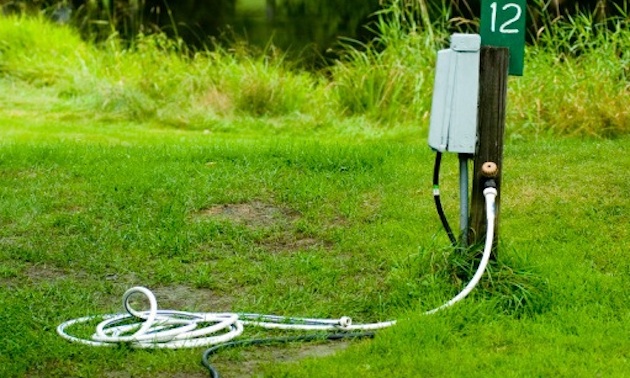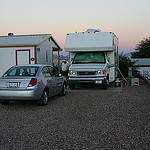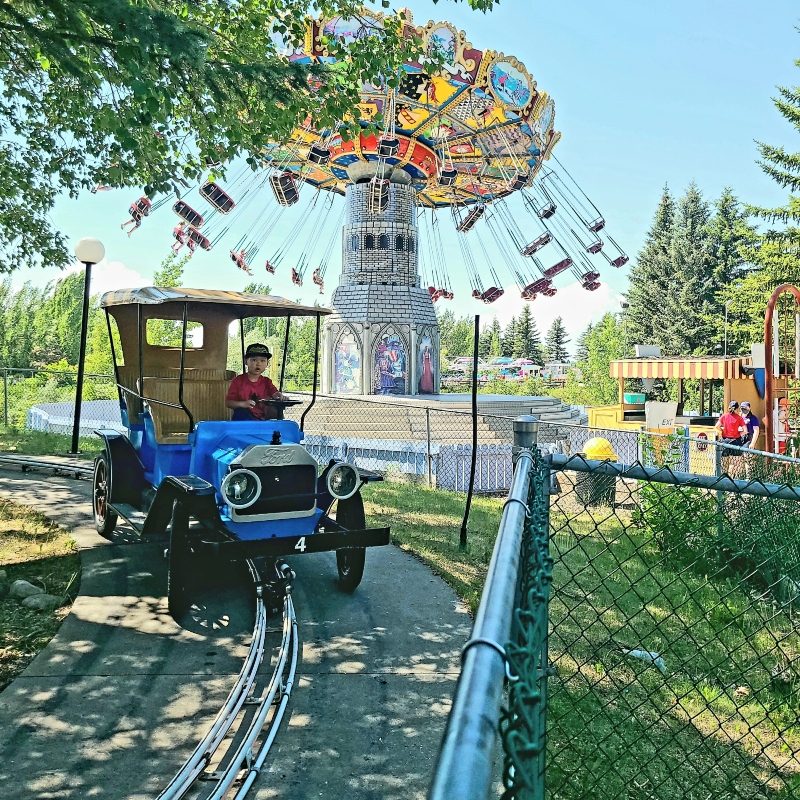Advice on power sources, water hoses and more
Learn this simple rule of thumb to determine whether propane or electricity is more cost-effective

Propane or electricity?
When we got up this morning it was very close to freezing, so the topic of electricity versus propane came up again in the morning coffee chatter. Everybody seems to have a different formula for deciding which is more economical, propane or electricity, for water heaters, refrigerators, etc.
Factor of 22: Way back when, we started using the 22 factor for our calculations. That is, we took the price of the electricity charged by the RV park and multiplied it by 22. If that amount came out to more than the price of a gallon of propane, (they measure propane in gallons rather than weight in the U.S.) then it is more economical to use propane. Presently we are paying 14 cents per kilowatt-hour and $2.41 per U.S. gallon for propane. At these prices, it is more economical to use propane rather than electricity where we can.
Use solar power: If you have solar panels, why not use the power? The easiest way to change over is simply by pulling the connection to the park power and plugging back in when you need it.
Use a portable propane tank: If your RV is a motorhome, you are well aware of the inconvenience of going to fill the propane tank. In some parks, there are trucks that come around to fill tanks, but it tends to be expensive. We use an external portable tank and hook it up with an Extend-a-Stay kit. The kit can be purchased at most RV supply places and is even carried by some big box stores.
Replacement igniter board
Most RV appliances use an electronic igniter board to control the gas valve and light the propane flame. The original equipment manufacturer (OEM) igniter boards are prone to failure and quite expensive to replace. Dinosaur Electronics manufactures a replacement board that tend to be more reliable and certainly less expensive. Fred is a “just in case” kind of person and we always carry a Dinosaur board.
Batteries
Batteries are another issue often discussed during the morning coffee chatter.What batteries are best for an RV?
RVers tend to use either liquid lead acid (LLA) or absorbed glass matt (AGM) batteries. AGMs are sealed and don’t need to be monitored for water. They can be stored inside or on their sides, charge more quickly and tend to hold a charge longer. The biggest drawback is they can cost two to three times the cost of LLA batteries.
Golf cart batteries: Many RVers have replaced their 12-volt house batteries with golf cart batteries that are six volt deep cell. The consensus is that they not only last longer, they store more power. The downside is that golf cart batteries require more space that the 12 volt because they are larger. So if you choose to use them, be sure there is enough space.
Keep them full: It is recommended that you fill the batteries at least once a month. Use only distilled water and add as required.
One of the best references we have found is The 12-Volt Side of Life by Mark S. Nemeth.
Water hoses
Use a white or light coloured hose for your potable water. When we first started travelling in our fifth wheel, we used a regular lawn hose and had great trouble with foul water.
Use a water-pressure regulator. To protect your hose and water lines, place a water pressure regulator between the water source and the hose.
Foam pipe insulation can be used to further protect the hoses against UV exposure as well as freezing.
Bulges or cracks in the skin are good signs that a hose is failing. As long as the outside looks good, the hose is probably okay.








